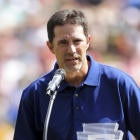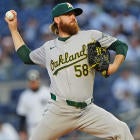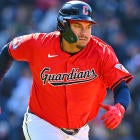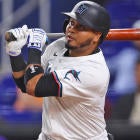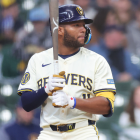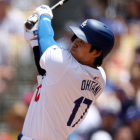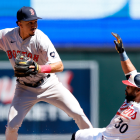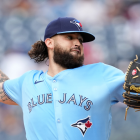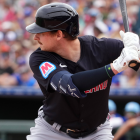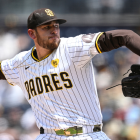In his sixth year on the National Baseball Hall of Fame ballot, longtime Baltimore Orioles and New York Yankees right-hander Mike Mussina is inching very close to induction into Cooperstown. According to Ryan Thibodaux's public ballot tracker, Mussina has appeared on more than 80 percent of submitted ballots, above the 75 threshold needed for induction.
Here, for reference, are Mussina's voting percentages in his first five years on the Hall of Fame ballot:
- 2014: 20.3 percent
- 2015: 24.6 percent
- 2016: 43.0 percent
- 2017: 51.8 percent
- 2018: 63.5 percent
That is a nice, steady increase. It doesn't guarantee Mussina will be inducted when the 2019 Hall of Fame class is announced next week -- historically, the non-public ballots not tracked by Thibodaux drag down each player's voting percentage -- but it is a strong positive trend that suggests Mussina will be voted into Cooperstown before his 10 years on the ballot are up.

Mussina of course has Hall of Fame worthy credentials. It has now been 50 years since the mound was lowered in 1969. Check out Mussina's ranks since then (min. 3,000 innings for rate stats):
- Wins: 270 (11th)
- Winning percentage: .638 (11th)
- Innings: 3,562 2/3 (21st)
- ERA: 3.68 (28th)
- ERA+: 123 (9th)
- WHIP: 1.19 (11th)
- Strikeouts: 2,813 (14th)
- K/BB rate: 3.58 (2nd)
- WAR: 82.9 (8th)
By almost any measure, Mussina is a top-20 pitcher since the mound was lowered, which means he's a top-20 pitcher over the last 50 years. Half-a-century. Adjust that ERA for the fact Mussina pitched in two hitter-friendly home ballparks (Camden Yards and Yankee Stadium) in the rough and tumble AL East at the height of the so-called Steroid Era -- this is exactly what ERA+ does -- and Mussina is a top-10 pitcher since the mound was lowered.
The case against Mussina revolves around bad timing more than anything. He pitched in the American League at the same time as Roger Clemens, Randy Johnson, and peak Pedro Martinez. Three inner circle Hall of Fame talents. Because of that, Mussina never won a Cy Young, but he did finish second in the voting once and nine times he finished in the top six. Mussina never won a World Series, but he did win two pennants, and he was a Luis Gonzalez bloop single away from a ring in 2001.
Mussina didn't win 20 games -- a historically meaningful but ultimately arbitrary milestone -- until his 18th and final season. He doesn't really have a signature moment either. If anything, Mussina's most memorable highlight is Carl Everett breaking up his perfect game bid with two outs in the ninth inning.
A Cy Young is not a requirement for the Hall of Fame. (Nolan Ryan never won one.) Neither is a World Series. (Lots of guys never won one.) A 20-win season? Signature moment? They hardly seem like a requirement for induction.
What Mussina provided was year in, year out greatness. Not counting his partial rookie season, he threw 150 innings in the other 17 seasons of his career, and in 12 of those 17 seasons he posted an ERA at least 20 percent better than the league average. Only three times did he finish a season with an ERA worse than the league average and all three came in his late 30s.
Fifteen pitchers in history have at least 11 seasons with 150 innings and a 120 ERA+ or better to their name. Twelve of them are in the Hall of Fame and they're basically the 12 greatest pitchers who ever lived. The three who aren't in the Hall of Fame: Roger Clemens, Curt Schilling, and Mike Mussina. That is the company Mussina keeps. His consistent greatness puts him among the all-time best.
It is possible, if not likely at this point, Mussina will be voted into the Hall of Fame. If it doesn't happen this year, then he'll make big voting gains again, putting him on track for induction either next year or soon thereafter. It's taken Mussina longer to gain support than it should have, really, but it's better late than never. He belongs in Cooperstown and is on his way.













